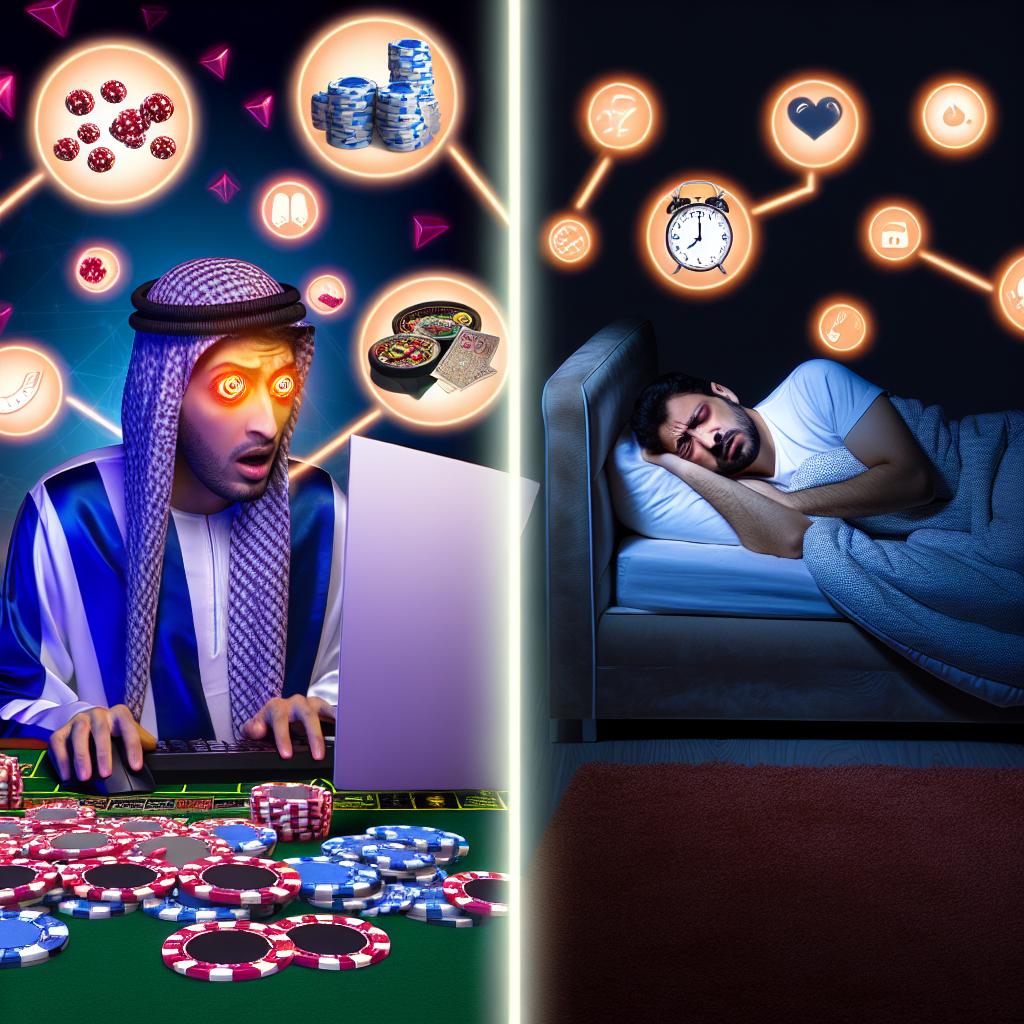Understanding Gaming Addiction
Gaming addiction, now recognized as a mental health disorder by various health institutions including the World Health Organization (WHO), is an increasingly prevalent issue affecting individuals globally. Also known as Internet Gaming Disorder, this condition is characterized by the excessive and compulsive use of video games that significantly interferes with daily life. Over the past few decades, the gaming industry has seen an explosion in both the popularity and complexity of video games, further fueling this addiction. One of the most serious health issues related to gaming addiction is its impact on sleep, which can lead to persistent sleep disorders.
Sleep Disorders Linked to Gaming Addiction
Among the various health effects of gaming addiction, sleep disorders stand out due to their pervasive impact on an individual’s overall health. These sleep disorders often manifest in numerous forms, including insomnia, changes in sleep-wake patterns, and degraded sleep quality. People affected by gaming addiction often find themselves prioritizing gaming over sleep, resulting in chronic deprivation of rest. This ongoing lack of sufficient sleep can lead to several health complications such as decreased cognitive abilities, increased stress levels, and weaker immune function.
Insomnia
Insomnia, a prevalent sleep disorder associated with extensive gaming, is characterized by difficulty in falling or staying asleep. Gamers often engage in long gaming sessions that lead to heightened levels of stimulation and excitement, making it hard for them to transition into sleep. Additionally, the significant exposure to blue light emitted from screens—whether from monitors, TVs, or smartphones—can interfere with the body’s natural production of melatonin, a hormone that regulates sleep, hence contributing to insomnia.
Delayed Sleep Phase Syndrome (DSPS)
Delayed Sleep Phase Syndrome (DSPS) is frequently observed among individuals with gaming addiction. DSPS involves a considerable delay in the typical sleep-wake cycle, prompting individuals to fall asleep and wake up much later than conventional times. Late-night gaming sessions play a crucial role in disrupting the body’s circadian rhythm or internal clock. As a result, individuals find it increasingly difficult to adhere to a regular schedule, further exacerbating the problem.
Poor Sleep Quality
Even when individuals manage to sleep, the quality of that rest is often impaired. Gamers may experience fragmented sleep patterns, frequent awakenings, and a general decline in restorative sleep. The intense engagement and overstimulation induced by gaming activities lead to increased arousal levels, impeding the transition to a restful and uninterrupted sleep after turning off the game.
Impact on Health and Daily Functioning
The repercussions of sleep disorders related to gaming addiction go beyond simple fatigue; they can profoundly affect various aspects of an individual’s mental and physical health. Insufficient or poor-quality sleep results in numerous negative outcomes that can influence everyday functioning.
Cognitive and Emotional Effects
Persistent sleep disruptions due to gaming addiction can impair attention span, memory retention, and decision-making abilities. Gamers frequently report higher levels of anxiety, irritability, and depression. The absence of adequate sleep has been associated with enhanced emotional volatility, making stress management a challenging task for affected individuals.
Physical Health Consequences
Sleep serves a crucial restorative function in the maintenance and repair of the body. Chronic sleep deprivation can undermine the immune system, making the body more prone to infections and diseases. Furthermore, it can disturb metabolic processes, potentially leading to weight gain and heightening the risk of cardiovascular problems. Maintaining a balanced sleep schedule is therefore central to sustaining physical health.
Strategies for Managing Sleep Disorders
Effectively addressing sleep disorders linked to gaming addiction calls for a comprehensive approach that targets both the addiction itself and the derivative sleep issues. Multiple strategies can be adopted to manage these challenges.
Setting Boundaries
Limiting gaming time is a fundamental initial step. Individuals should strive to curtail screen time, especially during the hours leading up to bedtime, to facilitate the body’s natural transition into sleep mode. Establishing a strict schedule, wherein gaming activities are balanced with other aspects of daily life, can aid in minimizing the addictive behavior.
Creating a Sleep-Conducive Environment
Promoting good sleep hygiene through creating a conducive sleeping environment is beneficial. This includes the maintenance of a regular sleep schedule, the reduction of screen exposure before bed, and the development of a comfortable sleeping space. Practices such as relaxation exercises, meditation, or mindfulness techniques before bedtime can further enhance sleep quality and ensure a restful sleep experience.
Seeking Professional Help
For individuals unable to effectively manage their gaming habits or sleep issues independently, professional support may be vital. Therapists and counselors can assist in developing healthier gaming routines and identifying as well as addressing any underlying psychological elements contributing to addiction. Sleep specialists, on the other hand, can offer tailored strategies designed to improve sleep patterns and bolster overall health.
To summarize, recognizing the connection between gaming addiction and sleep disorders is crucial for mitigating the negative impacts on health. With the right strategies and support, individuals struggling with this form of addiction can attain a balanced approach to gaming and secure a healthy sleep-wake cycle.

